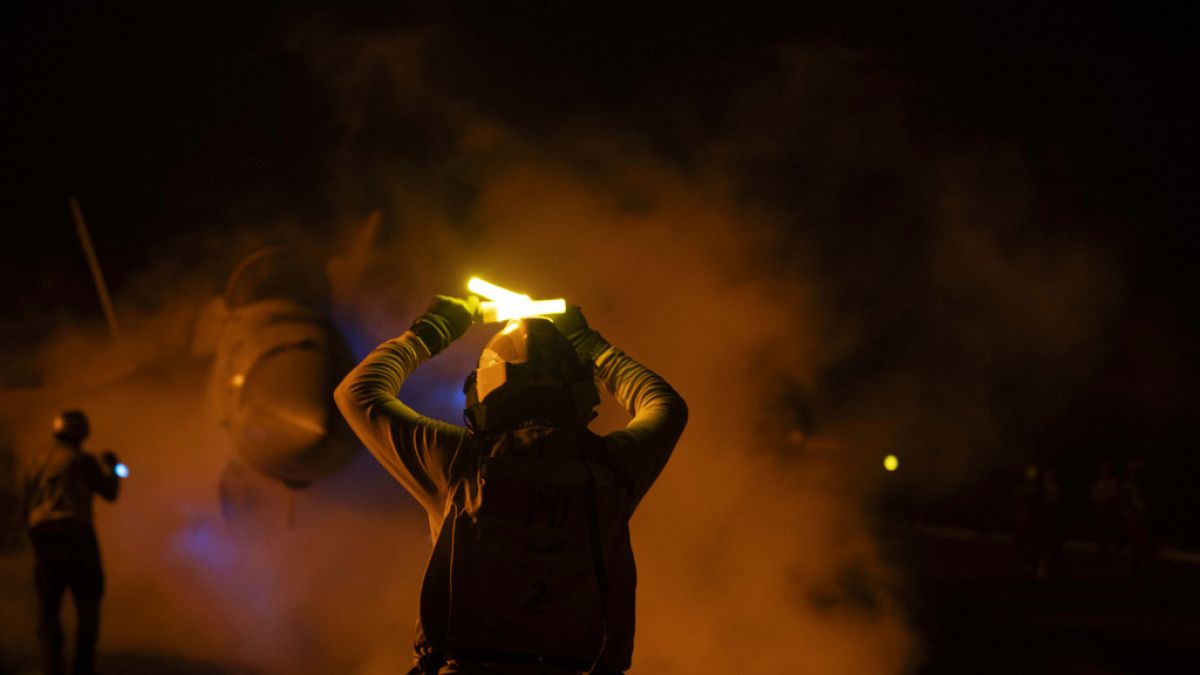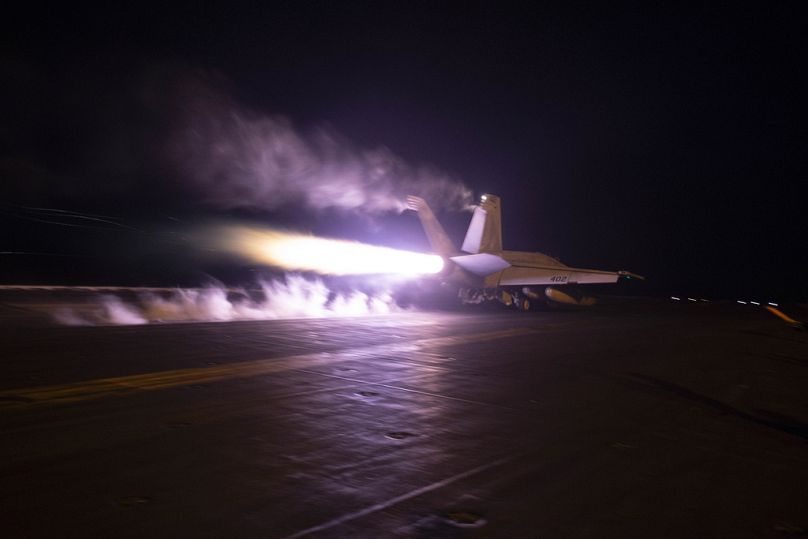"Our aim remains to de-escalate tensions and restore stability in the Red Sea," six allied nations behind the strikes on the rebel group said.
US and British militaries launched strikes against multiple targets used by the Houthi rebel group in Yemen on Monday.
The two allies hit eight sites across the country, striking the Iran-backed group's missile-launching and air surveillance capabilities.
The Houthis have been attacking ships in the Red Sea that they say are linked to Israel and the West in support of the Palestinians.
British and US forces used warships, submarine-launched Tomahawk missiles and fighter jets to take out Houthi missile storage sites, drones and launchers.
Australia, Bahrain, Canada and the Netherlands contributed to the mission, including intelligence and surveillance, according to military officials.
“Our aim remains to de-escalate tensions and restore stability in the Red Sea, but let us reiterate our warning to Houthi leadership: we will not hesitate to defend lives and the free flow of commerce in one of the world’s most critical waterways in the face of continued threats," said the six allied nations in a joint statement.
Britain's Defence Secretary Grant Shapps said the strikes were “aimed at degrading Houthi capabilities” and would “deal another blow to their limited stockpiles and ability to threaten global trade.”
The joint operation comes about 10 days after US and British forces struck more than 60 Houthi targets in 28 locations.
This was their first military response to a persistent campaign of Houthi drone and missile attacks on commercial ships fighting broke out between Israel and Hamas in October.
Strikes by the West have not stopped the Houthis
The chaotic wave of attacks hasn’t deterred the Houthis from their campaign against Red Sea shipping, while pushing the region closer to conflict war.
The Houthis, supplied, trained and advised by Iran, have made it clear that they have no intention of scaling back their assault.
“America and Britain will undoubtedly have to prepare to pay a heavy price and bear all the dire consequences of this blatant aggression,” said Hussein al-Ezzi, a Houthi official in their Foreign Ministry, following the first US and UK strikes.
Striking Israeli or Israel-bound ships has made the Houthis popular at home, where many Yemenis have struggled under their brutal rule.
They are also popular across the wider Arab world since the Houthis say they are supporting Hamas as part of the Iran-backed 'Axis of Resistance' against Israel.
For months, the Houthis have attacked ships in the region’s waterways that they say are either linked to Israel or heading to Israeli ports. But any such links to the ships targeted in the rebel assaults have grown more tenuous as the attacks continue.
They say their attacks aim to end the Israeli air-and-ground offensive in the Gaza Strip that has killed more than 25,000 Palestinians - mostly women and children - and much of reduced the enclave to ruins.
About 400 commercial vessels transit the southern Red Sea at any given time.
The ongoing violence has prompted companies to reroute their ships, sending them around Africa through the Cape of Good Hope instead — a much longer and less efficient passage.

